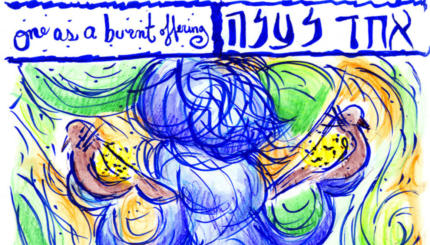I wasn’t in the crowd at the Lincoln Memorial when Dr. Martin Luther King gave his great oration, and I am not old enough to have been at Woodstock, but I’ve been to rock concerts and to political actions where I have felt powerfully connected to all present, our gathering feeling like a profound expression of brother and sisterhood. I have felt love for everyone in the room at a poignant wedding and even in the context of the elementary school assemblies of my daughters or in the sea of parents at their college graduations.
In such moments of anticipation or hope, my heart has been open to tens or hundreds and, in a few instances, to thousands of others. And from this I understand that our shared human experience of awe or wonder can engender feelings of benevolence, trust, and love. Who would covet or steal when they feel so sated? In such enriched circumstances, who would not feel grateful to their parents for giving them life? Who would not feel the power of creative force in our world?
I imagine that those standing at the foot of Sinai must have known something like the solidarity of these rare but real experiences, only more intense. In this week’s Torah portion (Exodus 18:1-20:23) the Children of Israel prepare for Revelation, and Midrash fills out the narrative adding that a profound peace settles upon the People, who are united in radical amazement – hearing the lightning, seeing the thunder, all quaking with the mountain. In my imagination, the Israelites became an organismic whole, and, indeed, our rabbis teach that, in that moment, their loving kindness was such that they did not, actually, need commandments to govern their behavior. So connected were they that harming one another would have seemed like attacking parts of their own selves.
Of course, we are not always at the foot of Sinai, and so it is helpful to know that we have a structure that holds us to the high dream of our natural tendency to treat others as ourselves when we feel connected by wondrous shared human experience.
And it is good to know that life includes the possibility of truly shared moments in which the ethics of the Ten Commandments feel absolutely natural, and we really don’t even need them, our love is so compassionate. The challenge, for me, is to expand the scope of such moments to include awareness of shared human experience with everyone in the check-out line at the grocery or everyone on the road when I am driving in heavy traffic.
Sinai could be my touchstone.
Torah
Pronunced: TORE-uh, Origin: Hebrew, the Five Books of Moses.



